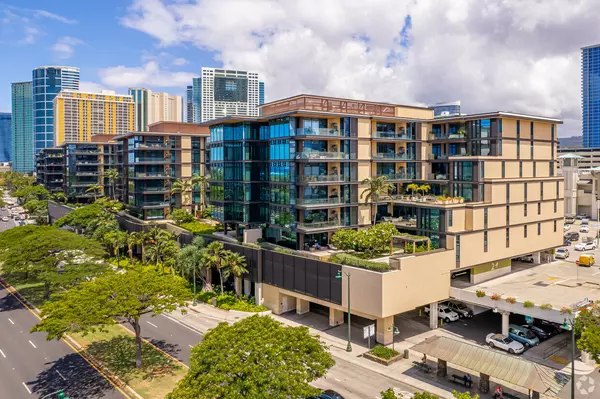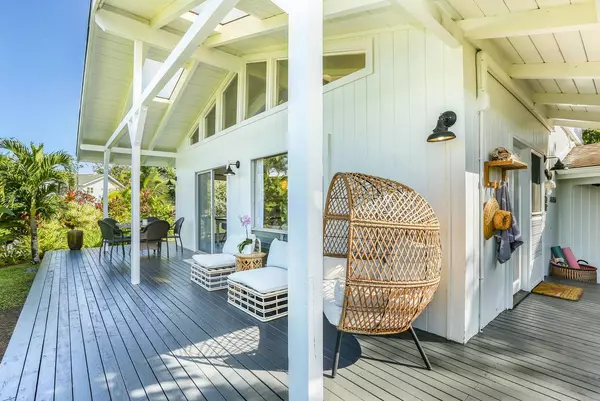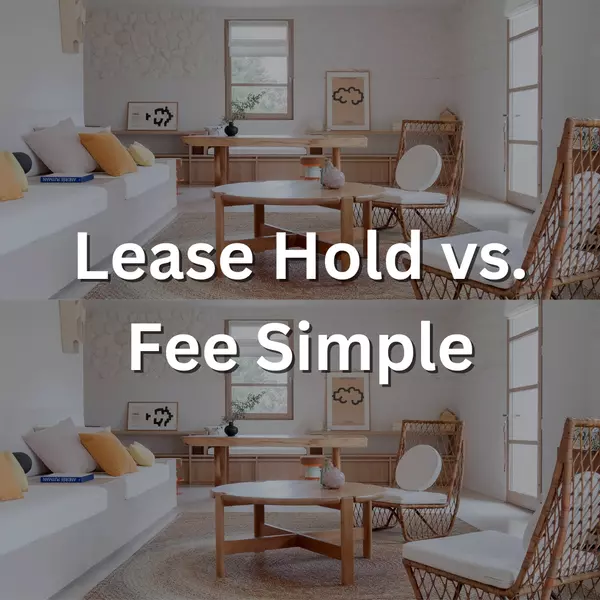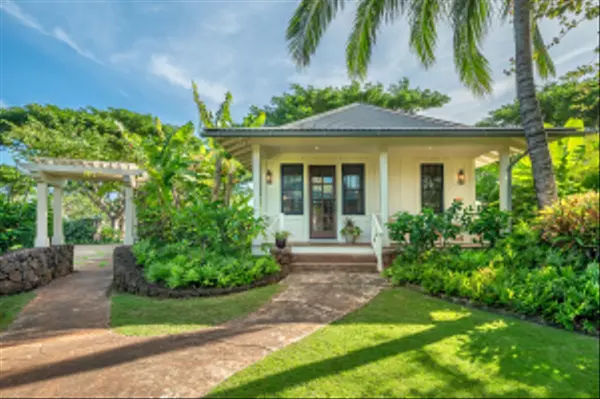
Discover Luxury Living at Park Lane Ala Moana | Honolulu's Premier Condos
Discover the Unmatched Elegance of Park Lane Ala Moana Nestled in the heart of Honolulu at 1388 Ala Moana Blvd, Park Lane Ala Moana represents the zenith of luxurious living in Hawaii. Established in 2017 and spanning an impressive 7.3 acres, this condominium complex is more than just a place to live—it's a declaration of a high-end lifestyle, designed to cater to those who seek the very best. Park Lane isn’t merely a residence; it’s a prestigious community set within the vibrant cityscape of Honolulu, perfectly blending luxury with a serene island ambiance. Park Lane Ala Moana: A Testament to Luxury and Architectural Brilliance At Park Lane, architectural elegance is paramount, influenced by the legendary works of Vladimir Ossipoff. Known for his ability to merge indoor and outdoor spaces seamlessly, Ossipoff’s influence is evident in the layout and design of Park Lane. Each of the seven 8-story buildings that make up the complex stands a commanding 100 feet tall, embodying a unique Hawaiian-themed architectural style that respects the natural beauty and culture of its location. The design promotes a tranquil living environment amidst lush tropical landscapes, ensuring every aspect of Park Lane complements its opulent interiors. Diverse Residences Tailored to Elite Preferences Park Lane offers 219 exclusive units with a variety of configurations, ranging from one to four bedrooms and spanning 2,000 to over 4,100 square feet. The diversity in residence types caters to a wide array of preferences and lifestyles: Sky Residences: A View from the Top The Sky Residences at Park Lane are designed for those who dream of living amongst the clouds. Located on the seventh and eighth floors of each building, these units offer expansive views that encompass the azure waves of the Pacific and the majestic profiles of the surrounding mountains. Each residence features floor-to-ceiling windows and spacious balconies, transforming living areas into an immersive natural panorama. The Sky Residences are a perfect blend of elevation, comfort, and luxury, designed for those who seek to elevate their living experience literally and figuratively. Ocean Residences: Front-Row Seats to Paradise The Ocean Residences provide a seamless connection to the oceanic landscape. Positioned to offer unobstructed vistas of the ocean, these homes are designed with open floor plans that maximize the breathtaking views. From the comfort of their living rooms, residents can enjoy the tranquil sight of the sun setting over the ocean, making these units a prime choice for those enchanted by the ocean's timeless allure. The strategic placement of these residences ensures that each day is greeted with a panorama of the Pacific's expansive beauty. Park Residences: Serenity Along the Lane Set along the vibrant and lush Park Lane path, the Park Residences offer a unique blend of accessibility and privacy. These homes are ideal for those who appreciate a serene environment that remains connected to the community's social heartbeat. With direct access to the lane, residents can enjoy leisurely walks or morning jogs in a beautifully maintained landscape that mirrors the tranquility of a private park. Each residence is designed to offer both seclusion and community integration, making them perfect for families or individuals who value privacy without isolation. Island Residences: The Essence of a Single-Family Home For those who desire the space and independence of a single-family home with the amenities and security of condominium living, the Island Residences are an ideal choice. These homes come with private pools and attached garages, offering a lifestyle that combines luxury with functionality. Located primarily on the third and fourth floors, these units provide easy access to their amenities while maintaining a level of exclusivity and privacy that mimics suburban living. The design integrates indoor and outdoor living spaces fluidly, making these residences a top choice for those who value space and privacy. Courtyard Residences: Nature and Luxury Interwoven Nestled around exquisitely landscaped courtyards, the Courtyard Residences are crafted for those who seek an oasis of calm amidst the buzz of city life. These units offer views of intricately designed green spaces that are visually soothing and enhance the overall living experience. The courtyards provide a communal space that fosters neighborly interaction while preserving the privacy of each residence. These homes are particularly appealing to those who appreciate the finer details of architectural landscaping and the tranquil environment it creates. Club Residences: Compact Luxury with Exquisite Amenities Located in Building 1, the Club Residences are designed to offer affordable luxury. These units are perfect for individuals or couples embarking on their journey into luxury living. Despite being more compact, these residences do not compromise on quality or access to amenities. They provide a smart layout that maximizes space efficiency, paired with access to all of Park Lane's luxury amenities. This includes wellness facilities, entertainment options, and social spaces, ensuring that residents enjoy a full spectrum of high-end living experiences. Unmatched Amenities for Discerning Residents The lifestyle at Park Lane is accentuated by comprehensive amenities designed to cater to every aspect of high-end living: Wellness and Recreation: A full-fledged spa, sauna, steam room, state-of-the-art fitness studio, and yoga room. Social and Entertainment: A club lounge, wine bar with private lockers, catering kitchen, private dining areas, and a movie theater. Outdoor Luxuries: A dog park, children’s playground, BBQ cabanas, and a 1,000 ft long scenic walking path known as the actual 'Park Lane'. Strategic Location and Convenience Situated on the edge of the Ala Moana Shopping Center, Park Lane provides seamless access to a plethora of retail, dining, and entertainment options. The integration of residential spaces above and parking below, along with direct entry from Piikoi St, exemplifies convenience and exclusivity. Most residences offer compelling views, whether of the ocean or the tropical landscape. Additional Features and Services Concierge Services: A full-service concierge assists with daily needs and special requests. Security and Privacy: Advanced soundproofing in windows and secure, private access to all areas. Exclusive Courtyards and Private Spaces: Many units feature oversized balconies with BBQ stations, private yards, and hot tubs or pools, enhancing the living experience. Detailed Look at Residential Features Each residence is designed with the utmost attention to detail: Balconies and Views: Most residences boast deep oversized balconies that serve as private retreats. These outdoor spaces are equipped with BBQ stations, enhancing the single-family home feel. Residential Layouts and Access: Units are designed with a focus on maximizing space and privacy. The unique numbering system ensures easy navigation, while the abundance of elevators reduces wait times significantly compared to other condos. Parking and Accessibility: The strategic placement of parking on the third and fourth floors provides residents with direct access to their units, emphasizing convenience and security. Guest parking includes valet services, ensuring a smooth experience for visitors. Living the Dream at Park Lane Living at Park Lane Ala Moana is more than just residing in a high-end condo; it's about embracing a lifestyle where every detail is crafted for luxury. From grocery delivery services by neighboring Foodland Farms to the option to reserve the Great Lawn for private events, every aspect of Park Lane is designed to cater to the sophisticated tastes and needs of its residents. Conclusion: The Epitome of Island Luxury Living Park Lane Ala Moana represents more than just luxury condominiums; it's a lifestyle enriched with sophistication, tailored amenities, and bespoke residences. Whether you are seeking a permanent home or a spectacular rental opportunity, Park Lane provides a living experience that is as diverse as it is luxurious. Discover your dream home in this Hawaiian paradise and experience the pinnacle of sophisticated island living. For more detailed information or to schedule a viewing, contact us today and step into the world of luxury that awaits at Park Lane Ala Moana.

Navigating Leasehold Real Estate in Hawaii: A Complete Guide for Buyers and Investors
Navigating Leasehold Real Estate in Hawaii: A Complete Guide for Buyers and Investors Table of Contents Introduction to Leasehold Properties in Hawaii Understanding Leasehold Ownership Advantages of Leasehold Properties Considerations When Buying Leasehold Navigating Lease Renegotiations Popular Leasehold Areas in Hawaii Real-Life Example: Leasehold in Action Conclusion: Is Leasehold Right for You? Introduction to Leasehold Properties in Hawaii Hawaii's leasehold real estate market is as unique as its landscapes, offering distinct property ownership forms that can seem daunting at first.Among these, leasehold vs. fee simple ownership are the most prevalent forms in Hawaii, but understanding their differences is critical for anyone looking to invest or live in the islands. In this comprehensive guide, we'll focus specifically on leasehold properties, which offer a different angle on property ownership compared to the mainland and even other parts of the world. For more information comparing the two types of ownership, check out our blog Fee Simple vs. Leasehold Properties in Hawaii Leasehold ownership, while less common in many places, plays a significant role in the Hawaiian real estate landscape. This is partly due to historical reasons that have shaped land ownership patterns unique to the islands. For prospective property owners, understanding Hawaii lease terms can help in making informed decisions about leasehold investments that align with their long-term goals and lifestyle preferences. Historical Background and Its Influence Hawaii's history profoundly impacts its current real estate practices. The concept of leasehold properties can be traced back to the Great Mahele in 1848, which transformed Hawaiian land ownership from a communal system under the chiefs and the King to private ownership. This shift laid the groundwork for the emergence of leasehold estates, particularly as missionaries and entrepreneurs began to own and lease land for agriculture, setting a precedent that extends into residential use today. Why Choose Leasehold? Buying leasehold in Hawaii might be driven by factors including lower initial costs and access to locations that might otherwise be prohibitively expensive. Understanding leasehold terms and how they can impact your property rights over time is crucial in assessing whether this type of ownership fits your investment profile and living needs. This comprehensive guide will delve deeper into understanding leasehold properties in Hawaii, how it differs from fee simple ownership, and the implications for you as a potential buyer or investor in Hawaiian real estate. By the end of this guide, you should have a clearer understanding of whether a leasehold property could be the right choice for your needs, offering insights into both the benefits and the considerations that come with this type of property ownership. Understanding Leasehold Ownership Leasehold ownership in Hawaii offers a unique approach to real estate that differs significantly from the more familiar fee simple ownership found throughout much of the United States. When you purchase a leasehold property, you are essentially buying the right to use the land for a predetermined period, typically ranging from several decades up to 99 years, depending on the specific terms of the lease. The Nature of Leasehold Agreements In a leasehold agreement, the landowner, often referred to as the lessor, grants the buyer, or lessee, the right to use the land for the duration of the lease term. This agreement does not convey ownership of the land itself; instead, it provides the lessee with a long-term rental agreement. The lease agreement will specify not only the length of the lease but also the conditions under which the lessee can use the property, responsibilities for maintenance, and other important factors such as the rights to build or modify existing structures. Components of a Leasehold Property When discussing leasehold properties, it's important to highlight three critical components that define this relationship in Hawaii's leasehold real estate context: Lease Term: This is the period during which the lessee has the right to occupy and use the property. Once the lease term expires, the property, including all improvements, typically reverts to the landowner, unless an extension is agreed upon. Lease Rent: This is the rent paid by the lessee to the lessor. Lease rent is initially agreed upon at the start of the lease term and may be subject to scheduled renegotiations based on the terms of the lease. These renegotiations can adjust the lease rent to reflect changes in the market value of the land and other economic conditions. Reversion: This is the process by which the property rights revert to the lessor at the end of the lease term. Understanding the implications of reversion is crucial for leasehold property owners, as it impacts decisions regarding long-term investments and improvements to the property. Benefits and Challenges of Leasehold Ownership Owning a leasehold property can offer several benefits, including lower upfront costs compared to fee simple ownership and access to prime real estate locations that might otherwise be unaffordable. However, the challenges can be significant, particularly as the end of the lease term approaches. These challenges include potential increases in lease rent, difficulties in securing financing, and the possibility of losing the right to use the property without compensation for improvements or enhancements made during the lease term. Understanding Your Rights and Responsibilities It is vital for potential lessees to thoroughly understand their rights and responsibilities under a leasehold agreement. This includes clarity on what happens during lease rent renegotiations, how property maintenance is handled, and the specific conditions under which the lease can be extended or terminated. Potential buyers should consult with real estate professionals who specialize in leasehold properties to navigate these complex aspects effectively. Advantages of Leasehold Properties Leasehold properties in Hawaii offer distinct advantages that can make them an attractive option for certain buyers. Understanding these benefits can help you decide if a leasehold property aligns with your investment strategy and lifestyle preferences. Cost-Effectiveness One of the most compelling reasons to consider a leasehold property is the cost advantage it offers compared to fee simple properties. The initial purchase price of a leasehold property is typically significantly lower, making it accessible to a broader range of buyers who might not be able to afford the same property under a fee simple arrangement. Lower Entry Price: The affordability of leasehold properties opens up real estate opportunities in premium locations that might otherwise be out of reach. This can be particularly appealing in high-demand areas of Hawaii where real estate prices are steep. Less Initial Investment: With less capital required upfront, buyers can allocate funds to other investments or expenses, providing financial flexibility. Access to Desirable Locations Leasehold properties are often located in prime real estate areas that offer exceptional lifestyle benefits. These locations can be near beaches, cultural centers, or tourist attractions, which are highly desirable but often come with a high fee simple cost. Proximity to Amenities: Living in these areas can offer an enhanced quality of life with easy access to beaches, shopping, dining, and entertainment options. Strong Rental Market: Properties in prime locations typically attract a steady demand for rentals, providing potential income opportunities for investors. Investment Potential Despite the temporary nature of the ownership, leasehold properties can be an excellent investment, especially if the property is located in a high-demand area and the lease term is sufficiently long. Rental Income: Investors can capitalize on the property by renting it out, generating a steady stream of income over the term of the lease. Appreciation Potential: While the property itself reverts to the landowner at the end of the lease, the value of any improvements or developments can appreciate, offering potential financial returns during the lease period. Flexibility and Opportunities Leasehold ownership also provides certain flexibilities that are less commonly found in traditional fee simple scenarios. Entry and Exit Strategy: For those not looking to permanently settle or hold a property long-term, leasehold offers a clear timeline for real estate commitments. Potential for Negotiation: Lease terms, including rent and duration, may sometimes be negotiable, providing room for tailored agreements that can benefit both the lessee and the lessor. Understanding the Advantages While the advantages of leasehold properties are significant, they come with unique challenges and risks that must be carefully considered. However, for many, the benefits outweigh the potential downsides, especially when it comes to accessibility and the opportunity to live in or invest in premium locations. Considerations When Buying Leasehold While leasehold properties in Hawaii can offer unique advantages, there are several important considerations that prospective buyers need to keep in mind. Understanding these factors is essential for making an informed decision and ensuring that your investment aligns with your long-term objectives and financial planning. Lease Duration and Property Value One of the most critical considerations is the duration of the lease: Remaining Lease Term: The value of a leasehold property is heavily influenced by the length of the remaining lease term. Properties with shorter lease terms may be less expensive upfront but can pose significant risks and challenges as the end of the lease approaches. Long-Term Planning: It's important to consider your long-term plans and how they align with the lease term. If the lease is likely to expire during your ownership, you need to be prepared for the possibility of renegotiating the lease or potentially losing your right to the property. Rental Increases Lease rent is another significant factor: Scheduled Rent Increases: Most lease agreements include terms for periodic rental increases, which can affect your financial planning. Understanding when and how these increases occur is crucial. Market Rate Adjustments: Rent increases are often tied to the current market value of the land, which can fluctuate based on economic conditions, demand, and other factors. Financing Challenges Financing a leasehold property can be more complex than financing a fee simple property: Mortgage Availability: Some lenders are hesitant to finance leasehold properties, especially those with shorter remaining lease terms. Higher Interest Rates: Lenders that do provide financing for leasehold properties may charge higher interest rates due to the perceived increased risk. Reversion of Property At the end of the lease term, the property reverts to the landowner: Loss of Improvements: Unless the lease is renegotiated or extended, any improvements made to the property will be lost, as they legally become the property of the landowner. Negotiation for Extension: Negotiating an extension can be complex and is not guaranteed. It typically involves reassessment of the lease terms, including potential rent increases. Legal and Practical Implications Understanding the legal and practical implications of leasehold ownership is vital: Legal Restrictions: Lease agreements may include restrictions on how you can use or modify the property. Property Sales: Selling a leasehold property can be more challenging, especially as the end of the lease term approaches. The property's marketability can decrease, affecting its resale value and potential buyer interest. Conclusion on Considerations Prospective buyers must weigh these considerations carefully against the potential benefits of leasehold ownership. Consulting with real estate professionals who specialize in leasehold properties, as well as financial advisors, can provide valuable insights and help navigate the complexities of this type of property investment. Navigating Lease Renegotiations Lease renegotiations are a critical aspect of leasehold ownership, significantly impacting the financial and practical terms of your agreement. Understanding how to navigate these negotiations effectively can help ensure that your leasehold property remains a valuable asset. Importance of Timing Renegotiation terms are typically predefined in the lease agreement. These stipulate when renegotiations occur, often every decade or at other intervals throughout the lease's duration. Preparation: Starting preparations well in advance of the renegotiation date is crucial. This gives you ample time to assess the market conditions, understand your position, and formulate your negotiation strategy. Professional Appraisals: It is advisable to obtain a professional appraisal of the property before renegotiations begin. This provides a current market value basis for your discussions about lease rent adjustments. Understanding Market Value Lease rent is generally adjusted based on the land's current market value, which can fluctuate due to various factors. Market Dynamics: Economic trends, local real estate market conditions, and other regional developments can influence the land's value. Staying informed about these factors can help you anticipate changes in lease rent. Comparable Properties: Looking at lease conditions and rents of comparable properties in the area can provide additional leverage and context during negotiations. Legal and Financial Considerations Engaging with experts can significantly enhance your renegotiation position: Real Estate Attorneys: A lawyer specializing in leasehold properties can provide invaluable advice on your legal rights and obligations, help interpret lease terms, and represent your interests during negotiations. Financial Advisors: Financial experts can help you understand the broader financial implications of the renegotiated terms, ensuring that they align with your long-term financial planning. Negotiation Strategies Approaching renegotiations with a clear strategy is essential for maintaining the value of your investment. Flexibility and Compromise: While having clear goals is important, being flexible and ready to compromise can facilitate a smoother negotiation process. Long-Term Focus: Focus on securing terms that are sustainable over the long term, rather than just minimizing costs in the short term. Renegotiation Outcomes The outcome of lease renegotiations can significantly affect the future utility and profitability of your property. Successful Renegotiations: Ideally, renegotiations will result in fair terms that reflect the current market conditions and ensure the property's continued viability. Challenges in Negotiations: If renegotiations are challenging or unsuccessful, it might lead to increased costs or even jeopardize your ability to continue utilizing the property effectively. Conclusion on Lease Renegotiations Effective negotiation is key to maintaining the value and viability of leasehold properties. By preparing adequately, understanding the market, and engaging with the right professionals, you can navigate these negotiations to secure favorable terms that align with your investment goals and financial strategy. Popular Leasehold Areas in Hawaii Hawaii is home to several areas where leasehold properties are particularly prevalent, each offering unique benefits and community features. Understanding where these areas are and what they offer can help you make a more informed decision when considering a leasehold property. Waikiki Waikiki is perhaps the most famous tourist destination in Hawaii and is known for its vibrant atmosphere, beautiful beaches, and extensive retail and dining options. The area boasts a high concentration of leasehold condominiums, making it a popular choice for investors and residential buyers alike. Investment Potential: The constant flow of tourists ensures a robust rental market, potentially yielding high rental income for property owners. Lifestyle and Amenities: Residents enjoy easy access to some of the best beaches in the world, luxury shopping, and a wide array of restaurants and entertainment venues. Honolulu As the capital city of Hawaii, Honolulu offers a dynamic mix of urban living with tropical landscapes. It hosts a range of leasehold properties, from residential apartments to commercial spaces, making it a versatile area for different types of investments. Economic Hub: Honolulu is the economic center of Hawaii, providing numerous employment opportunities and amenities that are attractive to both long-term residents and business investors. Cultural and Recreational Activities: The city is rich in cultural history, museums, theaters, parks, and recreational areas, adding to the quality of life for its inhabitants. Maui and the Big Island Both Maui and the Big Island offer unique opportunities for leasehold property investment, each with distinct characteristics: Maui: Known for its luxury resorts and stunning natural beauty, Maui offers leasehold properties primarily in resort areas. These properties often appeal to those looking for vacation homes or investment properties in the tourism sector. The Big Island: Featuring more diverse ecosystems and larger land areas, the Big Island provides options for more residential and agricultural leasehold properties. The varying climates and landscapes, from volcanic parks to lush rainforests, attract a wide range of residents and investors. Advantages of Leasehold in These Areas Investing in leasehold properties in these popular areas can offer several advantages: Accessibility to Prime Locations: Leasehold makes it more feasible for more people to live in or invest in prime locations that would be much more expensive if offered as fee simple. Potential for Appreciation: While the land reverts to the landowner at the end of the lease, the value of the location and the income potential from rentals can make these investments worthwhile. Community and Lifestyle: Each area offers a unique lifestyle and community vibe, from urban living in Honolulu to the relaxed, tourist-friendly atmospheres of Waikiki and Maui. Conclusion on Popular Leasehold Areas Choosing the right area for a leasehold property in Hawaii depends on your lifestyle preferences, investment goals, and financial strategies. Each area offers distinct advantages and challenges, and understanding these can help guide your decision-making process. Real-Life Example: Leasehold in Action To better understand how leasehold properties function in practice, let’s consider a real-life example involving a couple, John and Mary, who decided to purchase a leasehold condo in Waikiki. Background of the Purchase John and Mary were attracted to Waikiki for its vibrant lifestyle and the potential for a strong rental market due to its popularity with tourists. They found a condo with a lease term of 60 years, which seemed adequate for their long-term plans of both living in the condo for part of the year and renting it out as a vacation home when they were not using it. Initial Purchase Considerations Cost: The condo was significantly more affordable than a comparable fee simple property. This lower cost allowed them to invest in a more desirable location with better amenities. Lease Term: With a remaining lease term of 60 years, they felt confident that the property would meet their needs for the foreseeable future, including potential rental income generation. Lease Renegotiations Ten years into owning their condo, John and Mary faced their first lease rent renegotiation. Preparation: They had stayed informed about market trends and property values in Waikiki, which helped them during renegotiations. Outcome: Although the lease rent increased, it did so in line with their expectations and market rates. They were able to adjust the rental fees for their vacation home accordingly to maintain a profitable investment. Financial Planning and Impact Rental Income: The property continued to generate a steady stream of income from vacation rentals, which helped offset the cost of the increased lease rent. Long-Term Strategy: John and Mary plan to reassess their investment as the lease approaches its final years, considering whether to attempt renegotiating an extension or possibly sell the property before the lease term decreases further in duration. Lessons Learned Market Awareness: Keeping abreast of market conditions in Waikiki was crucial for John and Mary to anticipate changes and adjust their financial strategies accordingly. Legal and Financial Advice: Consulting with professionals helped them navigate the complexities of leasehold ownership, particularly during the renegotiation phases. Conclusion: Real-Life Implications of Leasehold Ownership John and Mary’s experience with their leasehold property in Waikiki illustrates both the opportunities and challenges inherent in this type of real estate investment. Their story highlights the importance of understanding lease terms, preparing for renegotiations, and staying informed about the local real estate market to make the most of a leasehold property. This example provides a tangible look at how leasehold properties can function as both a home and an investment, demonstrating the practical implications and strategic considerations involved in managing such properties. Conclusion: Is Leasehold Right for You? Deciding whether to invest in a leasehold property in Hawaii involves careful consideration of numerous factors. These properties offer unique opportunities but also come with their own set of challenges. Understanding both is crucial to making an informed decision that aligns with your financial goals and lifestyle preferences. Summarizing the Pros of Leasehold Ownership Affordability: Leasehold properties are generally more accessible price-wise, opening up opportunities to live in or invest in high-demand areas that might otherwise be out of reach. Prime Locations: Many leasehold properties are situated in some of Hawaii's most desirable areas, providing access to excellent amenities and lifestyles. Investment Potential: For those looking at the shorter-term investment or even long-term with a strategy for handling the lease expiration, leaseholds can offer significant rental income potential and a lower entry cost. Weighing the Cons Finite Ownership: The biggest drawback of leasehold properties is the expiration of the lease. This finite term can lead to potential issues with property value depreciation, challenges in selling the property as the lease term shortens, and possible loss of the investment when the lease expires. Variable Costs: Lease renegotiations can result in increased lease rents, affecting profitability and cost of living. Complexity in Transactions: Buying, selling, and financing leasehold properties can be more complicated than their fee simple counterparts, often requiring additional legal and financial advice. Making the Decision When considering a leasehold property, weigh these pros and cons against your personal or investment goals. Ask yourself a few key questions: How long do you plan to keep the property? If you're looking for a long-term family home, the nearing end of a lease could pose significant challenges. What is your risk tolerance? Leaseholds come with inherent risks, particularly related to the lease term and market conditions. Are you prepared for potential additional costs? From lease rent increases to possible legal fees during lease renegotiations, additional costs can accrue. Consulting with Professionals Due to the complexities involved, consulting with real estate professionals who specialize in leasehold properties, as well as financial advisors and attorneys, is highly recommended. These experts can provide crucial insights into the specifics of a lease agreement, help forecast potential changes in the market, and guide you through the financial planning necessary to manage a leasehold property effectively. Final Thoughts Leasehold properties in Hawaii can be a wise investment under the right circumstances. They provide a lower-cost entry into premium markets and offer potential high returns on investment through rental income. However, they require active management and strategic planning to navigate the risks associated with lease terms and market fluctuations. In conclusion, whether a leasehold property is right for you depends on your financial situation, investment strategy, and long-term goals. Understanding the nuances of leasehold real estate is key to making an informed decision that will benefit you for the duration of your lease and beyond.

Fee Simple vs. Leasehold Properties in Hawaii
Fee Simple vs. Leasehold Properties in Hawaii When it comes to purchasing a property in Hawaii, you may come across terms like "fee simple" and "leasehold." Understanding the difference between these two types of properties is crucial, as it can have a significant impact on your investment. In this blog post, we will delve into the nitty-gritty details of fee simple and leasehold properties in Hawaii, providing you with a comprehensive understanding of their differences. Fee simple or leasehold? It's a question that every buyer in Hawaii must answer before making a real estate investment. Let's start by examining fee simple properties. In a fee simple ownership, the buyer acquires full ownership of both the land and the building on it. This type of ownership is considered the most comprehensive and valuable in the real estate market. On the other hand, leasehold properties involve the buyer leasing the land for a predetermined period of time, typically ranging from 10 to 99 years. In this case, the buyer doesn't own the land but has the right to use it and the structure built on it. While leasehold properties may initially seem less attractive than fee simple properties, they can still be a viable option for buyers looking for more affordable investments. One of the most significant differences between fee simple and leasehold properties is the financial aspect. In the case of fee simple properties, buyers can secure a mortgage with relative ease. With a fee simple property, the land serves as collateral, providing lenders with greater security. As a result, buyers can enjoy lower interest rates and more flexible financing options. On the contrary, obtaining a mortgage for a leasehold property can be more challenging. Lenders tend to view leasehold properties as higher-risk investments due to the limited ownership rights. Consequently, securing financing for leasehold properties may require a larger down payment and higher interest rates. Buyers interested in leasehold properties should be prepared for these financial considerations and consult with a knowledgeable mortgage broker. Investing in fee simple properties is generally considered a safer option, as the buyer has complete ownership and control over the property. Additionally, fee simple properties tend to appreciate in value over time, making them a popular choice among investors looking to build long-term wealth. However, leasehold properties can provide unique investment opportunities as well. These properties are often more affordable upfront, allowing buyers to enter the real estate market at a lower entry point. Leasehold properties may also offer attractive lease terms, such as fixed rent increases or the option to purchase the fee interest in the future. Investors interested in leasehold properties should carefully analyze the terms and conditions of the lease to ensure it aligns with their investment goals. When it comes to buying real estate in Hawaii, understanding the differences between fee simple and leasehold properties is essential. While fee simple properties offer full ownership and greater financing options, leasehold properties can provide more affordable investment opportunities. Each type of property has its own set of advantages and considerations, and buyers should carefully evaluate their financial goals and risk tolerance before making a decision. In conclusion, investing in Hawaii real estate requires a detailed understanding of fee simple and leasehold properties. Fee simple properties provide complete ownership and more favorable financing terms, while leasehold properties offer affordability and unique lease terms. Both options have their merits and should be considered based on individual investment goals. Consulting with a real estate professional is highly recommended to navigate the intricacies of the Hawaiian real estate market and make an informed decision.
Categories
Recent Posts






